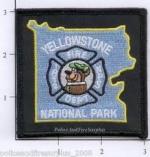Discussion boards seem to be synonymous with an online course. New to the online course realm, I wonder about the learning outcomes of discussion board participation. So, when asked to develop a survey as an assignment for my TT1411 course, rather than designing one for my current face to face class, I created one for my colleagues and for my students who have had experience with online courses. Nine people responded to the survey. The results follow.
Which best describes your experience with online education?
This question asked respondents to select from among four answers. To date, nine have taken the survey; this represents an educational experience level from first year undergraduate work to post graduate studies with 44% indicating that the TT1411 course is one of a handful of courses taken online and 22% admit to being a seasoned pro at taking online courses and another 22% facilitate an online course. Only 1% indicated that this was the first online course taken.
Please elaborate about your experience with online learning.
This question asked respondents to provide a brief background with online experience. Overall, experience ranged from novice to expert with experiences described as “I’m kind of enjoying it now though,” “It’s been a real eye-opening experience,” and “I like it because it lets you work at a pace that works with you.”
Which best describes your reason for taking this online class?
This question asked respondents to choose from four answers. Everyone remembered the reason for taking the online class, with reasons equally split among: It is required by my institution, I am seeking to expand my knowledge, and It is a required course.
Which describes your opinion of Discussion Board participation?
This question asked survey respondents to choose between two answers. Two to one believe that Discussion board participation is somewhat enjoyable as opposed to enjoyable. No one indicated that Discussion board participation is not enjoyable.
Regarding Discussion Boards, I prefer
This question asked survey respondents to choose between two answers. While more participants prefer writing a response to a discussion board question to reading the discussion board responses of other participants, the gap is 12% or one respondent: 56% to 44% or 5 to 4
Regarding Discussion Boards, for the most part, I prefer when
This question asked survey respondents to choose between two answers. Survey respondents clearly indicated with 89% that they prefer when each participant answers different questions rather than when each participant answers the same question.
Regarding Discussion Boards, rank the following in terms of value to you.
This question asked survey respondents to rank four choices: read responses of other participants, read and comment on responses of other participants, read comments by other participants about my response, and read and reply to comments by other participants about my response. Although one student indicated a problem with the ranking mode, the results are evenly spread in rank with read and reply to comments by other participants about my response slightly emerging as the leader with 33% of the vote and the other choices equally ranked.
In order of most to least value:
- Read and reply to comments by other participants about my response
- Read and comment on responses of other participants
- Read responses of other participants
- Read comments by other participants about my response
Please elaborate on the value you place on Discussion Boards.
This question asked survey respondents to provide an opinion of discussion boards. Two comments indicated a high value: “Discussion boards are a critical aspect of online learning as it acts as one way which students can interact with one another as well as the content” and “Discussion Boards provide an opportunity for students to get involved and create a community of learning and thus I consider them very important.” Other comments indicate there is a value: “I find them useful,” “3 out of 4,” and “It helps the students see other opinions and responses to a question.” However, other comments suggest a more lukewarm opinion: “Ok,” “It’s a great way to get to know students,” “Unsure. It goes to the value and purpose of the discussion,” and “It’s good in an idea course. I don’t teach an idea course, I teach an application course.”
Choose the seven “must haves” in an online course.
This question asked survey respondents to choose the seven “must haves” of an online course from a list of 17 activities. Some 67% of the respondents agree that five of the seven “must haves” in an online course are: reading resources, academic in nature; reading resources, application in nature; discussion board with participants answering different questions; videos; and weekly assignments. While answers varied to fill the remaining two of the top seven “must haves”, 56% agree that icebreaker and application activities fill those two spots. Next, 44% include a collaborative activity and a module reflection in the top seven “must haves”, followed by 33% including Polls and Surveys and podcasts. In contrast, only 11% felt research activities and guest lectures belong in the top seven “must haves”. Further, only 22% thought a final project or a discussion board with participants answering the same question deserve to be in the top seven. Interestingly, no one included Twitter or a Course Wiki in the seven “must haves”.
The top seven “must have” list:
- reading resources, academic in nature
- reading resources, application in nature
- discussion board with participants answering different questions
- videos
- weekly assignments
- icebreaker activity
- application activity
Didn’t make the top seven “must have” list:


 for Joliet Junior College, Joliet, Ill. For those who don’t know, JJC is the first community college in the nation, and Joliet is a suburb of Chicago and may sound vaguely familiar if you’re a Blues Brothers movie fan.
for Joliet Junior College, Joliet, Ill. For those who don’t know, JJC is the first community college in the nation, and Joliet is a suburb of Chicago and may sound vaguely familiar if you’re a Blues Brothers movie fan.
Recent Comments